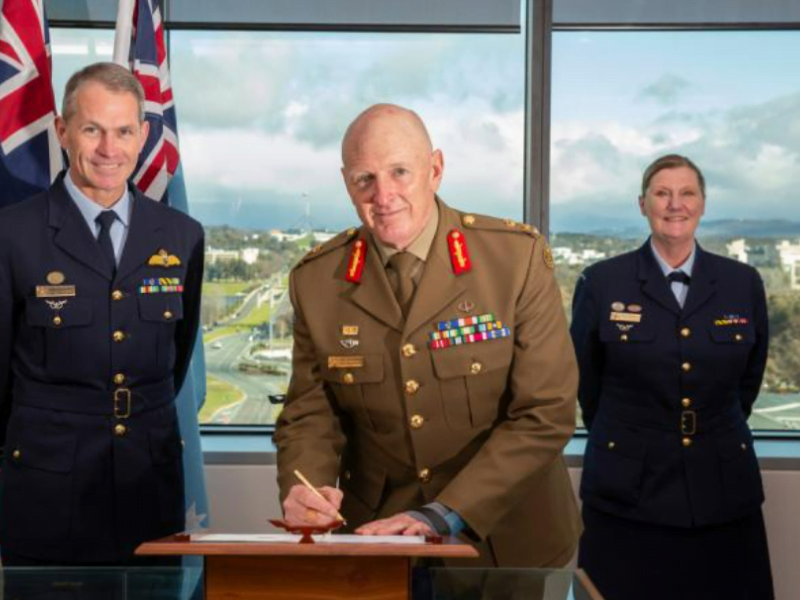Closer collaboration with the local space industry is a key Defence priority according to chief of joint capabilities Lieutenant General John Frewen, with commercial capabilities becoming increasingly important in “complementing and augmenting Defence’s Space Command culture and structures’.
General Frewen opened the Space Industry Association of Australia’s annual Southern Space conference on Tuesday, about three and a half months after Space Command was formlly moved from the Air Force to the joint capability group. He outlined Defence’s priorities for the space domain, with an emphasis building local capability.
“To date, Australia has been reliant on our international allies and partners for space access. We value our relationships and the partnerships our allies and partners have extended to us. But we now feel it is time to give back and to be a much more active contributor in the space domain.”
However, he later flagged that Defence will still look to “share capability amongst allies…first and foremost”.
“While Defence looks to leverage the Australian space industry where possible, our international partners and allies are still necessary to ensure Australia’s space capabilities and resilience are not compromised,” he said.
General Frewen said that space is “very much a team game”, meaning the Department will remain “closely dependent on our industry partners” regarding the development and maintenance of space capabilities even if there is a transition “through competition into conflict”.

The overarching aim of Defence’s space program will be to increase Australia’s contribution to assuring access to space in the Indo-Pacific region, and to deter adversaries. As such, General Frewen said Defence must ensure it is a “fully integrated part of the increasingly multi-domain capabilities and systems both among the ADF and our key allies and partners”.
For the local space industry to remain commercially sustainable, Defence cannot be the only customer “and I note all space capabilities have dual military and civilian uses”, General Frewen said. He noted that Defence Space Command and the Australian Space Agency “have complementary but different roles in achieving Australia’s military and civil space objectives”.
“While Defence space capability requirements are increasing, Defence is unlikely to support the commercial business model without additional non-defence customers. This includes our satellite and ground station requirements as well as any future launch requirements,” Lieutenant General Frewen said.
“Commercial capabilities will play an increasingly important role in complementing and augmenting Defence’s Space Command culture and structures.”
Because space technology development moves quickly, he noted that “the current defence capability lifecycle process is too slow”. According to a finding in the Defence Strategic Review released earlier this year, there was a need for “another rapid acquisition [program] for smaller rapid acquisition project”, General Frewen said.
He also highlighted the importance of building space control capabilities – “the ability to protect and defend our own [space] capacities while we do seek to assert our own capacities at the same time”.
Responding to another question, he also highlighted the importance of building space control capabilities – “the ability to protect and defend our own [space] capacities while we do seek to assert our own capacities at the same time”.
“Now that’s hard for a big organisation like ours and it does depend on tolerances in government for for risk and the like, but we are working through all of that. It’s not easy, but it is going to be absolutely essential.
“Defence isn’t the best organisation for rapid innovation, industry is far better for that. So that’s why we need to work together to figure out how to best to best achieve this going forward, because the cycle of competition will be like the cycle of conflict of, adaption and counter adaption.”
Do you know more? Contact James Riley via Email.

